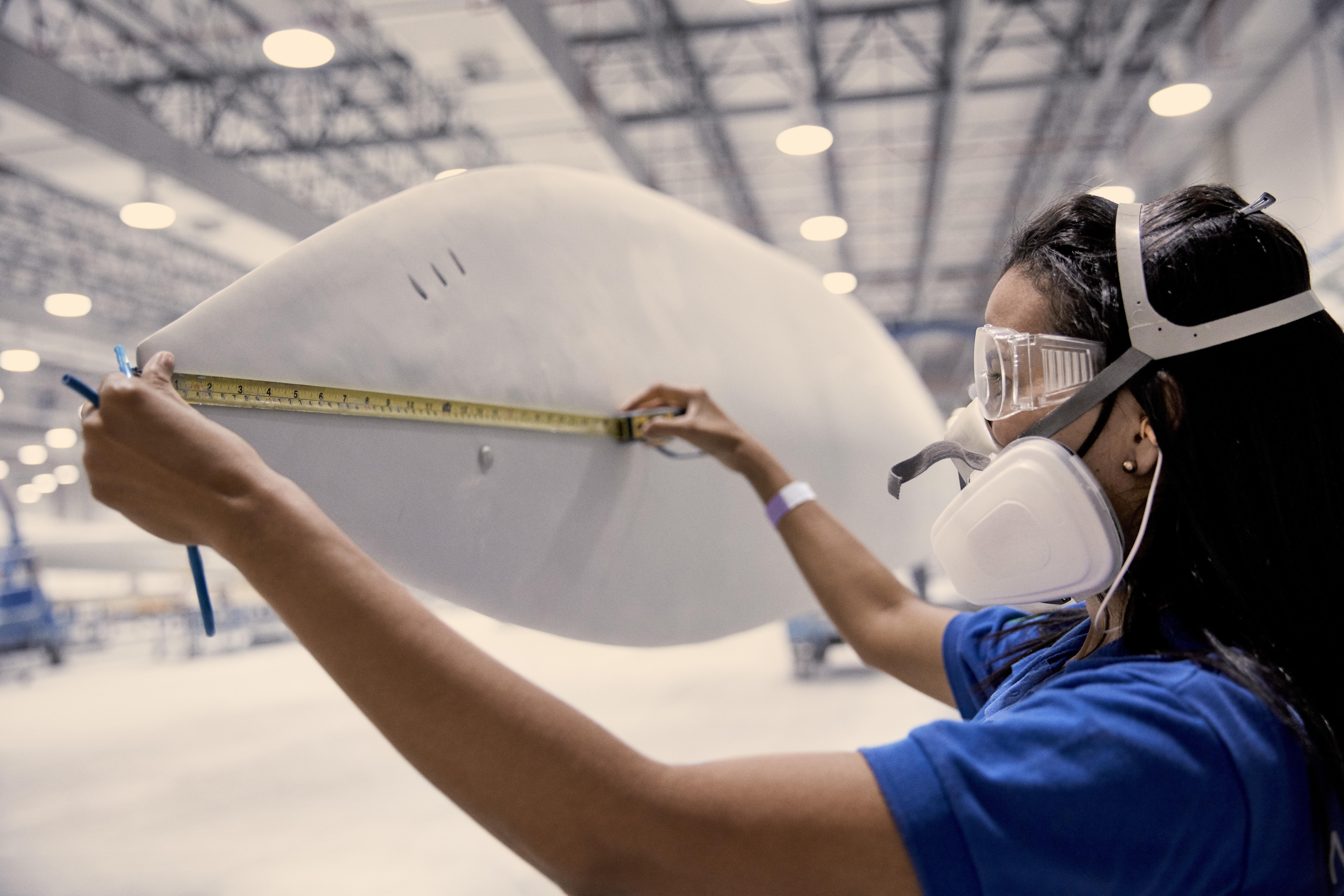
Towards circular wind turbines: Our zero waste blades commitment
On November 23 we announced our pledge to produce zero waste blades by 2030, a significant milestone for the industry as it seeks to reduce the carbon footprint of its products. The commitment represents a step forward in our sustainability journey after becoming the first carbon neutral business in the wind industry already in 2018.
LM Wind Power will play a central role in supporting its customers to develop fully circular wind turbines that generate less waste during their production. In practice, LM Wind Power’s vision of zero waste blades means the company aims to send no manufacturing materials and packaging to landfill and incineration without energy recovery by 2030.
Waste from manufacturing represents one of the biggest challenges faced by many industries as they seek to reduce their carbon footprint. Nearly one third of our operational carbon footprint comes from waste disposal.
In the wind industry, around 20-25% of the materials purchased by wind turbine blade manufacturers do not go into the final product, and research indicates that blade manufacturing waste volumes are expected to be larger than decommissioned blade volumes during the coming decade.
“We have a track-record of working with our partners to address our most pressing challenges. Our technology has played a crucial role in making wind power one of the most competitive sources of electricity,” states Olivier Fontan, CEO of LM Wind Power.
“Now the focus has evolved from making wind power not only competitive, but also making the industry sustainable. It is not one or the other but both. We are determined to work with our partners to reduce the carbon footprint of wind turbines; together we can be the example of how an industry transforms its value chain to support the green transition and the critical move to a circular economy. Zero waste blades are our contribution to this industry mission.”
For wind turbine and blade manufacturers alike, the key to reducing the product carbon footprint lies in the supply chain. In the blade life cycle, around 75% of CO2 emissions occur in the supply chain.
“This is a call to action for suppliers to the wind industry: join us in designing out waste from our value chain,” says Hanif Mashal, LM Wind Power Vice President, Engineering and Technology. “Engagement with our supply chain on waste prevention will increase over the coming years; in partnerships we will also explore how we can ultimately deliver waste back to suppliers, for recycling into new materials that will be supplied to the wind industry or other sectors.”
While blade manufacturing waste prevention and recycling will be a major focus for the company, we are also working with partners to establish sustainable, large-scale solutions to recycle decommissioned blades through the DecomBlades project. We are also engaged in the development of next generation blades that can be more easily recycled through the ZEBRA (Zero Waste Blade Research) project.
Read more here.
